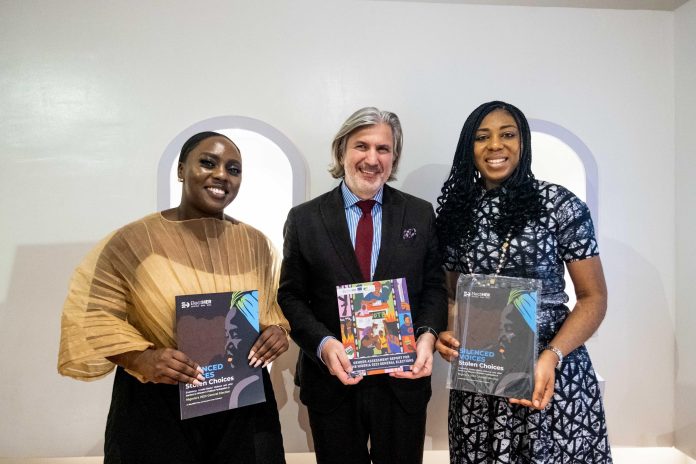ElectHER, a pan-African organization committed to enhancing women’s participation in economic and public life recently presented two pivotal reports at a high-profile event in Abuja, Nigeria.
This is a significant move towards fostering gender equality in Nigeria’s political sphere.
The event which held at the Discovery Museum, featured an art exhibition portraying women’s experiences in Nigeria through various mediums, including paintings, poetry, and AI-generated art. Simultaneously, panel discussions explored women’s electoral representation and delved into the impact of security infrastructure and electoral violence.
ElectHER’s founder and CEO, Ibijoke Faborode unveiled the reports: “ElectHER’s Gender Assessment Report of the 2023 Elections” and “Silenced Voices, Stolen Choices.” The former scrutinizes the role of women in the 2023 general elections, while the latter addresses gender-based violence and barriers obstructing women’s political participation.
Faborode expressed concern over the decline in female representation, stating, “In the 2023 elections, out of 1553 women who contested for political seats, 72 women were elected, representing a huge loss for female candidates. Compared to the last election cycle, we have a retrogression.”
ElectHER’s Gender Assessment Report for the 2023 General Elections
The report sheds light on the dynamics influencing women’s participation in the 2023 elections. It revealed that women were relatively more successful in securing nominations under smaller political parties. Out of 1553 women who contested, only 72 were elected, indicating a significant gender disparity.
The report presented case studies of notable women candidates, illustrating enablers like grassroots mobilization and women’s networks. However, it also outlined challenges such as gender-based electoral violence, poor campaign financing, and the influence of patriarchy and godfatherism.
Recommended strategies include advocacy for affirmative action, gender quotas, training, media campaigns, and election observation to address the gender gap in Nigerian politics.
Silenced Voices, Stolen Choices; Examining Gender-Based Violence in Nigeria’s 2023 General Elections
This report delves into the severe impact of gender-based electoral violence on women’s political participation. Despite no legal barriers in the Nigerian constitution, the study identified cases of violence, including false allegations, physical violence, cyberbullying, sexual abuse, and verbal insults.
The report recommended specific actions for the Nigerian government, political parties, civil society, and the media to address and mitigate violence against women in political processes.
At the event, Mr. Zissimos Vergos of the EU delegation to Nigeria emphasized the national significance of addressing women’s underrepresentation in politics. Vanessa Gregory of the Nigerian Women Trust Fund called for an ongoing dialogue on gender inclusion, emphasizing its importance beyond election periods.
Rukayat Shittu, a member of the Kwara State House of Assembly, acknowledged the challenges highlighted in the reports and urged stakeholders to implement the recommendations for a more inclusive political landscape.
ElectHER, in collaboration with partners and support from the European Union, remains dedicated to advancing women’s representation across Africa through research, policy innovation, capacity development, and resource mobilization.

